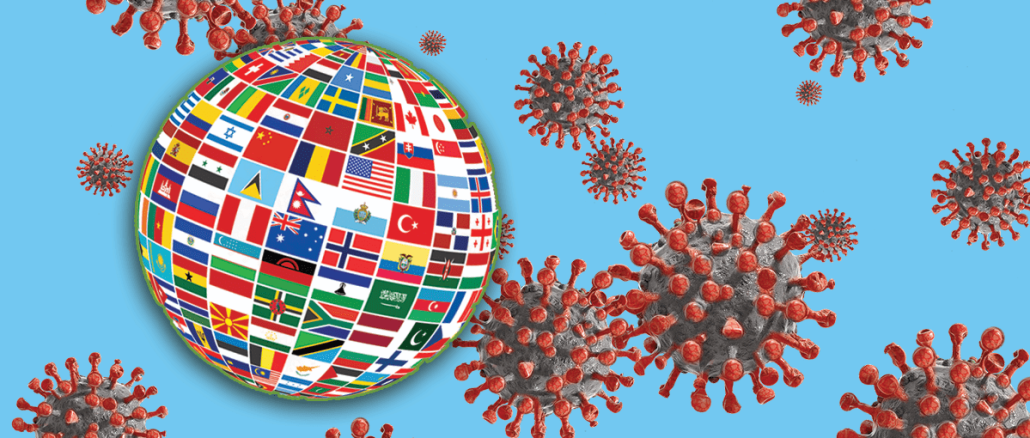International relations is the study of the interaction of nation states and non-governmental organizations in fields such as politics, economics, and security. International relations involves all activities and interaction between states such as diplomacy, government, trade, war, foreign policy and so on.
One of the basic issues that international relations is premised on is health. Health issues are closely connected to other prominent themes in international relations such as conflict and security, development, poverty alleviation, trade, human rights, environmental degradation, global governance and the activities of non-governmental organizations like the WHO, global health network, and others.
What is COVID 19?
In early 2020, a new virus began generating headlines all over the world because of the unprecedented speed of its transmission. Its origins have been traced to a food market in Wuhan, China, in December 2019. From there, it’s reached countries as distant as the United States and the Philippines. The virus (officially named SARS-CoV-2) has been responsible for over 100 million infections globally, causing around 2.5 million deaths. The United States is the country most affected. The disease caused by contracting SARS-CoV-2 is called COVID-19, which stands for coronavirus disease 2019.
The common symptoms of Covid-19 include; shortness of breath, cough that gets severe over time, fever, chills, and fatigue.
Impact of COVID 19 on international relations
COVID 19 has impacted international relations in several ways, ranging from trade to economy, food supply, travel, and so much more. Unexpected situations like the emergence of the corona virus test the resilience of institutions, social capital, socio-economy and political systems. They force societies to look into themselves to discover what they can and what they cannot do. The COVID -19 calamity reveals where capacities in state and outside state exist. It shows where capability is strong or where it is weak, thus, the pandemic gives societies a clear sense of what parts of their institutions need strengthening. This pandemic’s effect may help enhance society’s ability to deal better with more enduring crises such as pangs of grinding poverty, unmitigated inequalities and general morbidity. In most developing countries like the African states for instance, the pandemic has exposed the need for better health facilities and the need to largely invest financially in the health sector. On the other hand, at the international level, the pandemic has thrown up the urgent need for international cooperation and transnational responses to common problems. In this regard, the pandemic led to debates about the role of regional and international agencies. The COVID-19 pandemic has further affected international relations and caused diplomatic tensions. Some scholars have argued that the pandemic necessitates a significant rethinking of existing approaches to international relations, with a greater focus on issues such as health diplomacy, the politics of crisis, and border politics. Others have argued that the pandemic is unlikely to lead to significant changes in the international system. Diplomatic relations have been affected due to tensions around trade and transport of medicines, diagnostic tests and hospital equipment for coronavirus disease 2019. Leaders of some countries have accused other countries for not containing the disease effectively and resulting in the uncontrolled spread of the virus. Developing nations in Latin America and Africa cannot find enough materials for testing for coronavirus disease, partly because the United States and countries in Europe are outspending the resources. Generally, it is mentioned that diplomacy and its practice have been facing some adjustments.
Conclusively, the pandemic disease caused by the novel coronavirus (COVID-19) is a political problem as much, it is a public health tragedy. As earlier stated, international relations deals with the interrelationship between domestic and international politics. In any kind of emergency, including a health emergency, it is important first to have an understanding of the contemporary political environment. International relations can offer ‘entry points’ for understanding cooperation and coordination between states, and where barriers may arise. A lot can be achieved by coordination, cooperation and paying attention to not just trade and economy, but the possibility of global emergencies like the corona virus.
Contributed By Oluwakemi Olayemi







